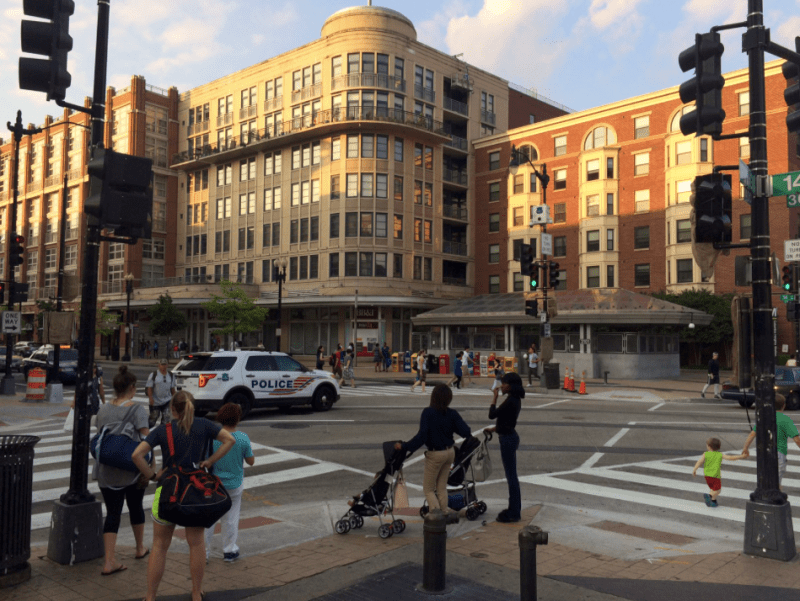D.C. Mayor Muriel Bowser wants to establish 15 mile per hour zones in parts of the capital and raise the fines for speeding. But advocates say the city isn't doing enough to stop people from dying.
There have been 27 traffic deaths in D.C. already this year. That's an increase of three over last year, despite the mayor's stated commitment to Vision Zero policies that aim to gradually eliminate traffic deaths altogether.
Under Bowser's latest initiative, the maximum fines — for going 25 mph over the speed limit — would rise to $500. Ten other traffic penalties would also be increased, according to WJLA in Washington.
But at a hearing this week, advocates testified for six hours that Bowser is not doing enough to change the streets themselves.
"It is very evidently not a priority for the Mayor's Office," said cyclist Alex Baca of the Coalition for Smarter Growth, who broke her jaw and sustained dental injuries in a crash last year.
She added that Vision Zero has been little more than a "marketing effort" by City Hall.
"You’re not seeing DDOT really do anything that looks like Vision Zero in a measurable fashion," she told Streetsblog.
For example, the city hasn't moved to implement its Move D.C. Plan, which calls for 343 miles of bike infrastructure, 75 of which were to be protected bike lanes. In just one instance, a two-mile protected bike lane through the Shaw neighborhood has been delayed for nearly two years. The city has been changing and refining designs since 2016 related to pushback from churches over on-street car storage — often referred to as parking.
And the District Department of Transportation, according to the Washington Times, has failed to abide by the 2016 Bicycle and Pedestrian Safety Amendment Act, which required the agency to gather information about traffic collisions so planners could make informed decisions about where to initiate safety interventions.
Thursday's hearing was full of people who shared stories of having their lives altered by injuries suffered on the streets of the District. A representative of George Washington University Hospital testified that the facility has treated 700 people for traffic-related injuries in just under two years, according to the Washington Times.
Baca says the Mayor's speeding reduction policies are a good start, but she doesn't feel confident they will be enforced. Changes to the city's streets are really needed to reduce speeding more than enforcement, she said.
"We’re at a point in D.C. where we could do so much more," she said. "There’s a political appetite for it, but it’s just not happening."






